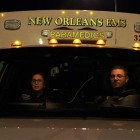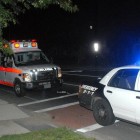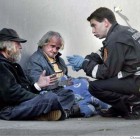
Mar 16, 2015
With the season finale of Nightwatch coming up this week, I got thinking about the value of EMS based EMS. This thinking was also fueled by yet another series of perceived response failures in fire-based EMS services on different sides of the country, specifically in San Francisco and Washington, DC. While I stand by the argument that response times do not matter as much as we allow us to this that we do, I still fail to understand how the general public does not recognize the value of an EMS only service, especially after a certain population and call volume size. As always, I feel the need to point out that there are exceptions to every rule. There are private services that get it. There are EMS services that are fire-based that do it right. But, as I said above, at a certain size there are others in both of these sectors that fail miserably and fall short of their expectations. The difference between the two though is when a private service fails to meet expectations, they are usually replaced. Quickly. When it is a fire service they are given chance after chance after chance. The vast majority of third service stand alone EMS systems are successful in their missions, and they are successful because they are dedicated to EMS. What could be better than a team of medics dedicated to providing medicine? How can an argument be made that in a vacuum when you take away any funding issues that might arise from having a standalone department that a stand alone EMS service dedicating themselves 100% to the medical well being of the community that they serve is not the best possible delivery model? Last month, there was an EMS1 article written about priorities in EMS training. While fire training is usually a lot more extensive than most EMS CEU classes (I am basing this on what I am told by my fire centric colleagues) from the numbers that I have seen reported from a number of different departments the volume of training is not anywhere near to equal or equitable. In my EMS based EMS service, for example, we schedule around sixty hours...






